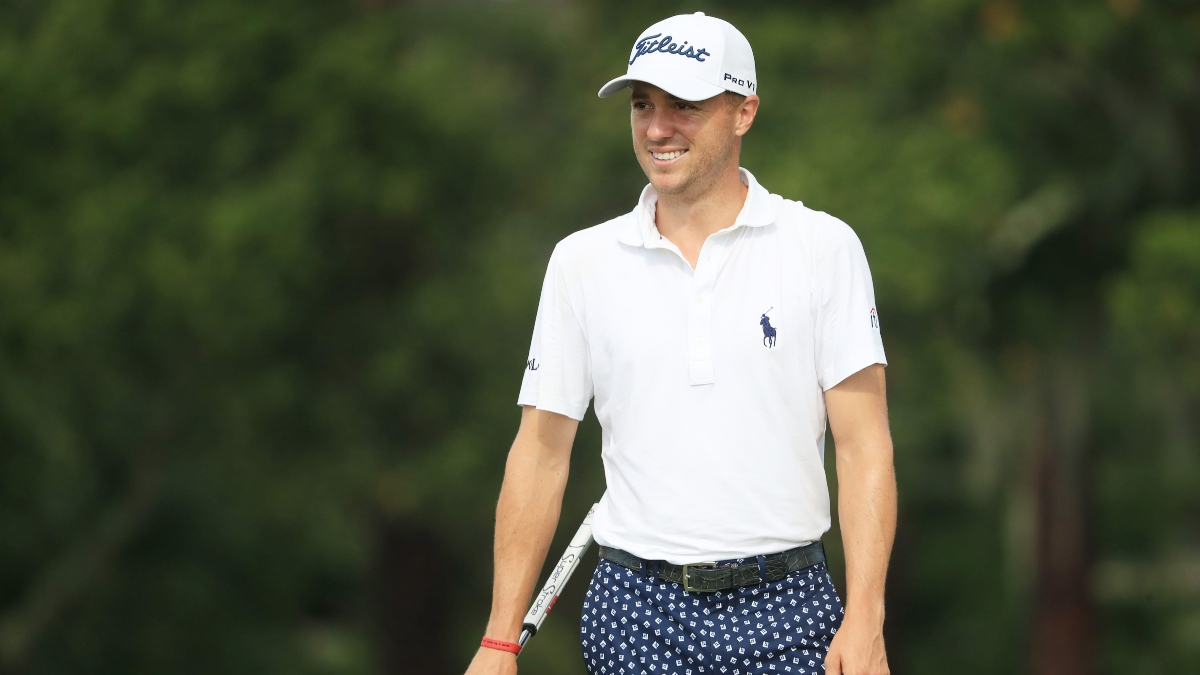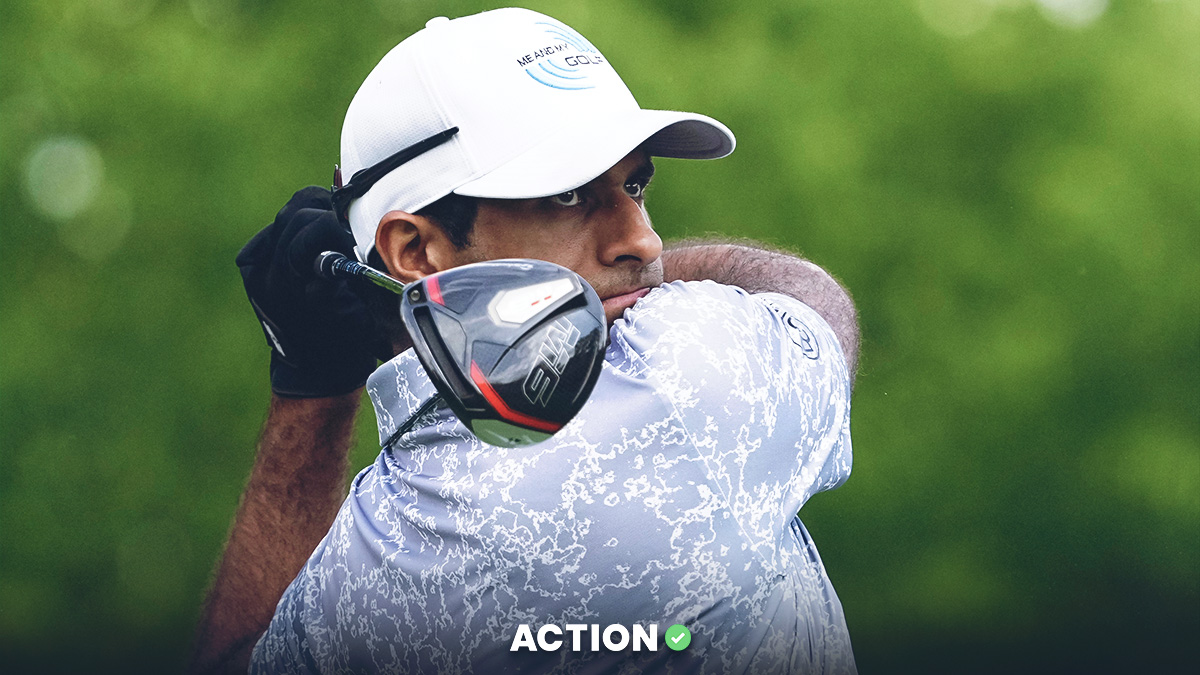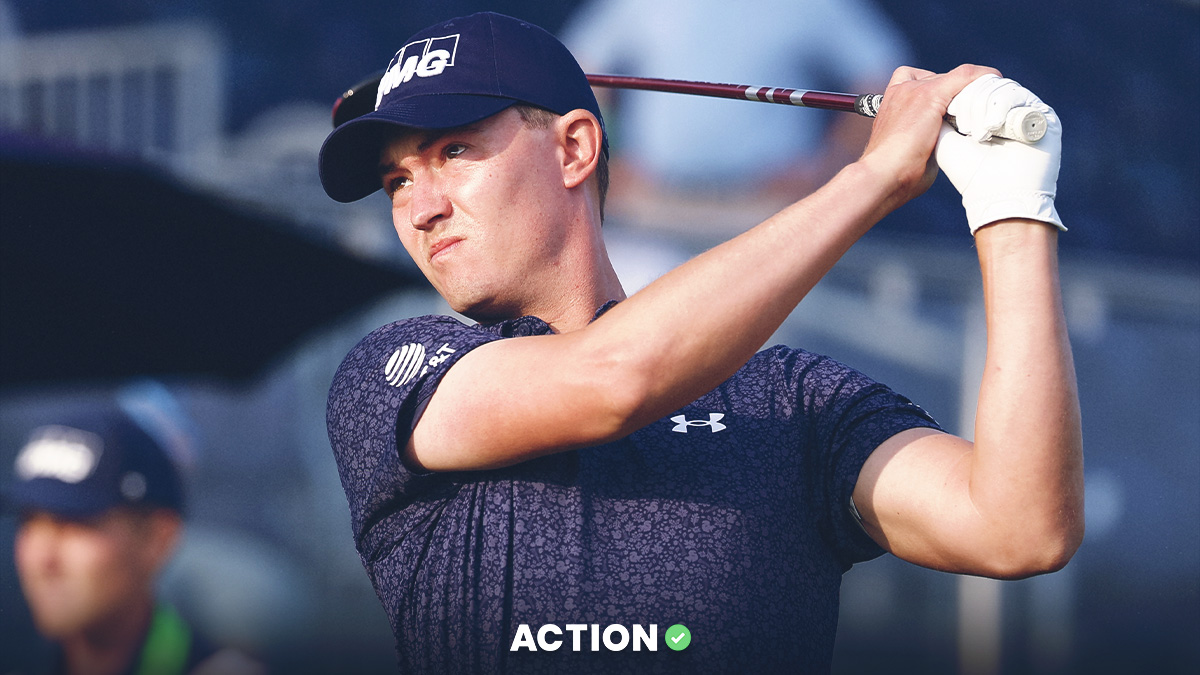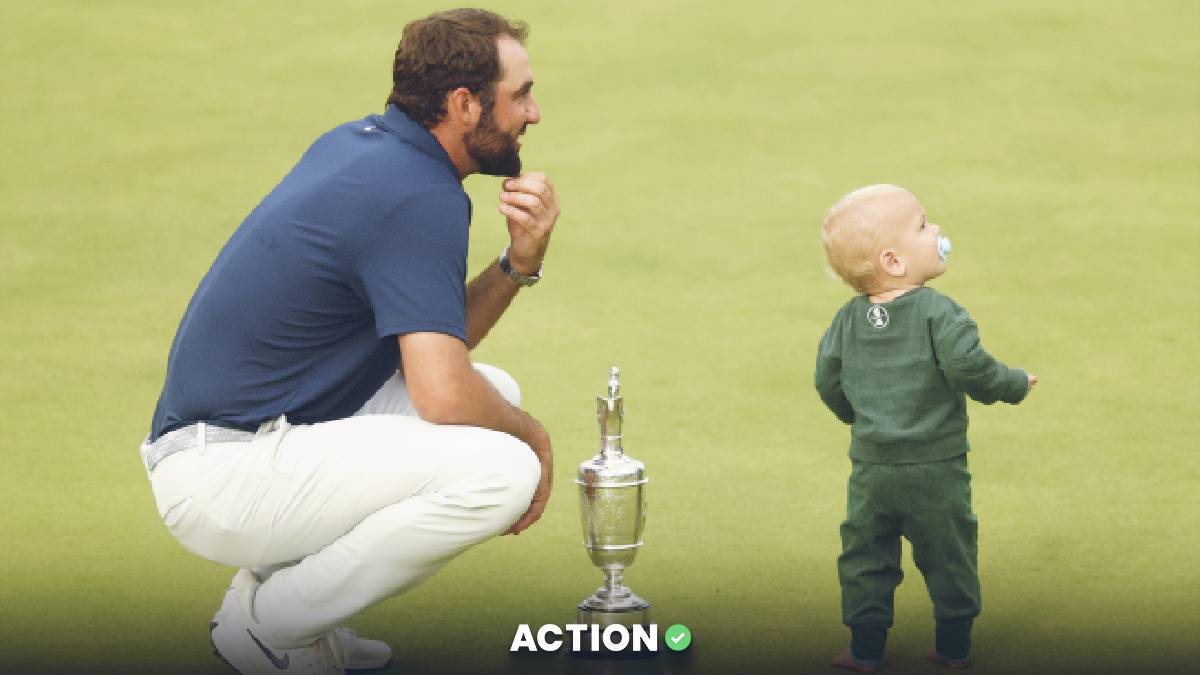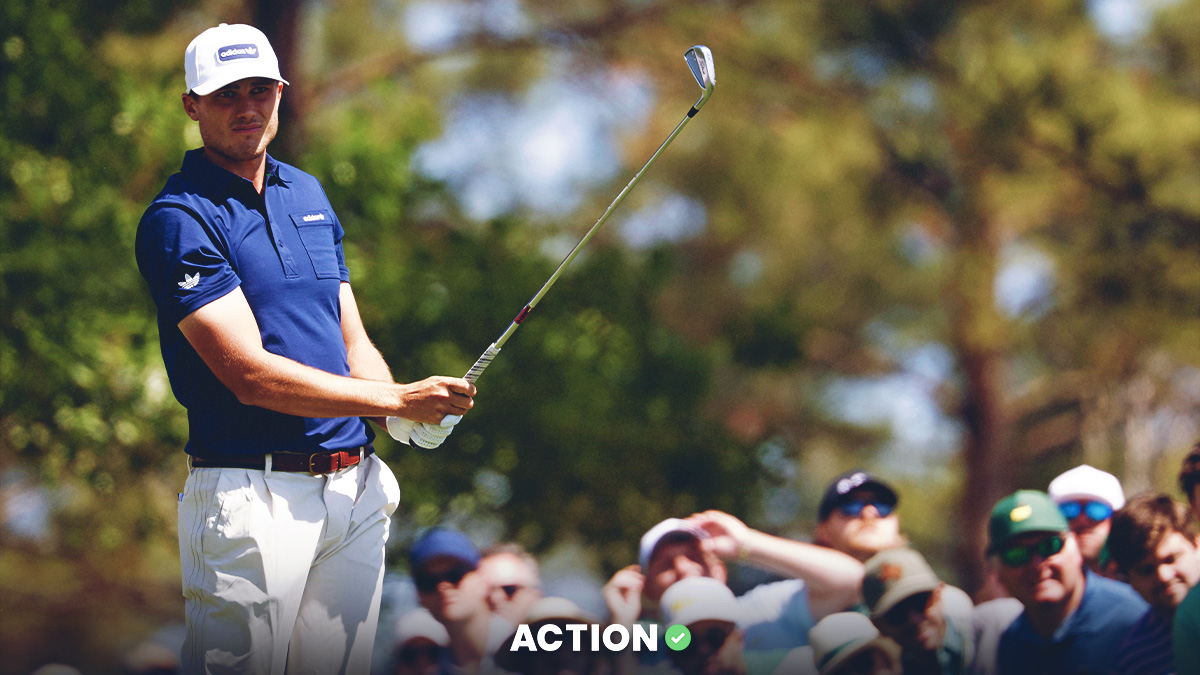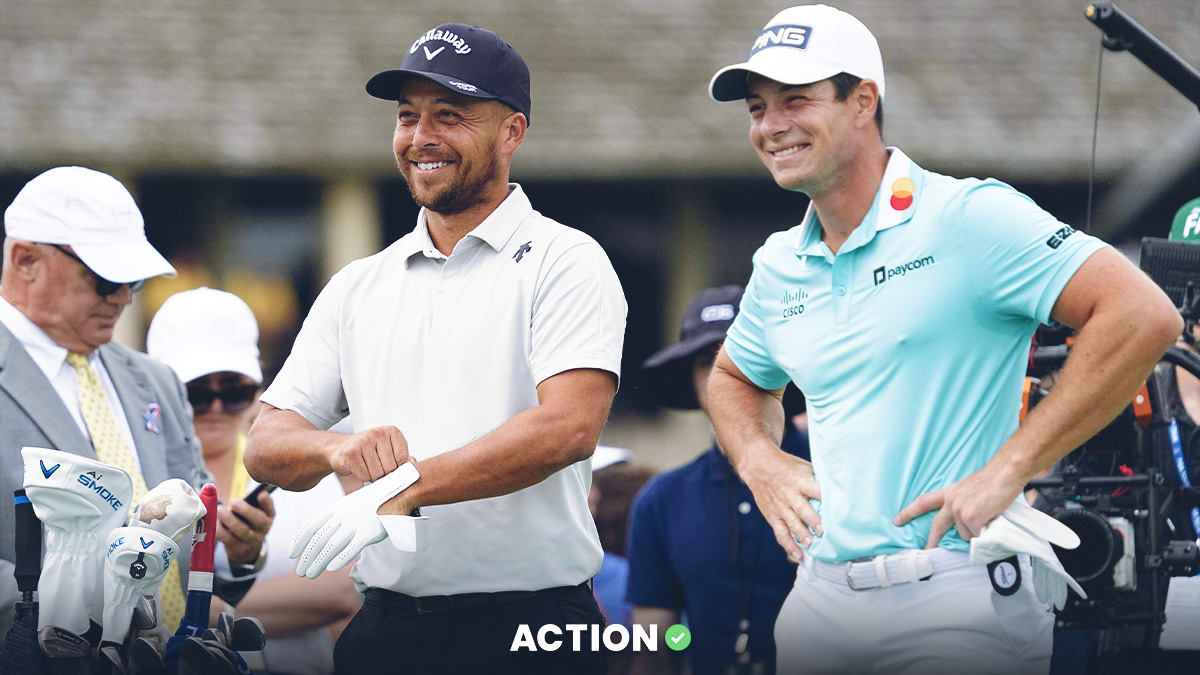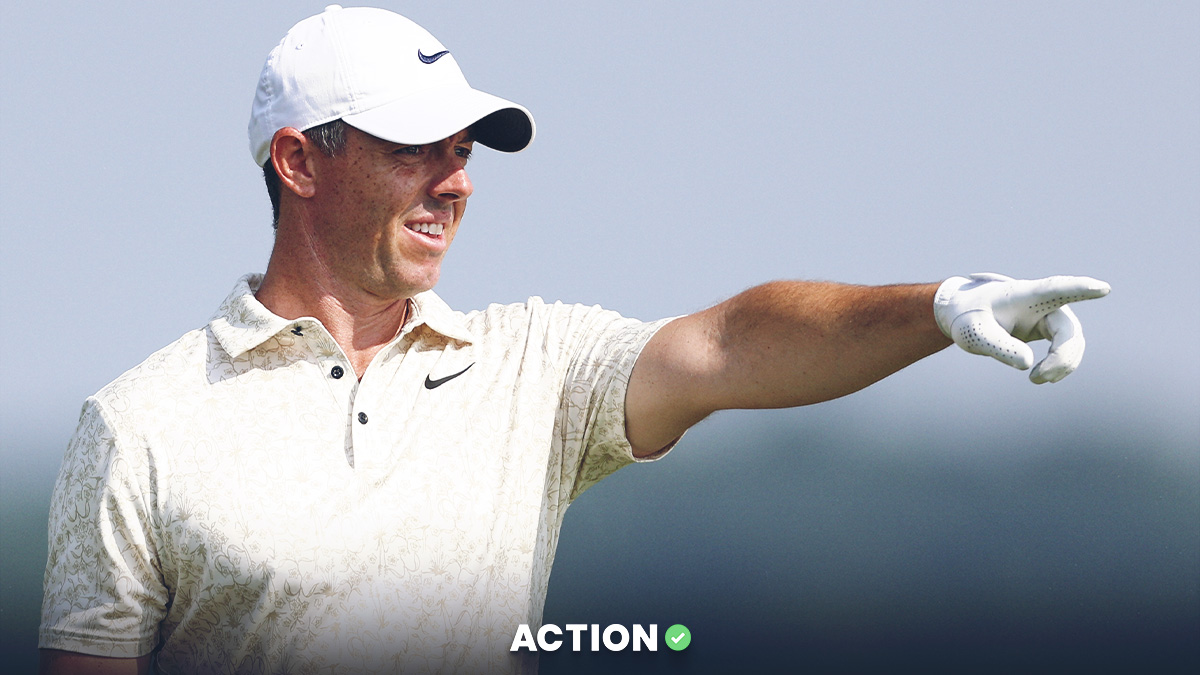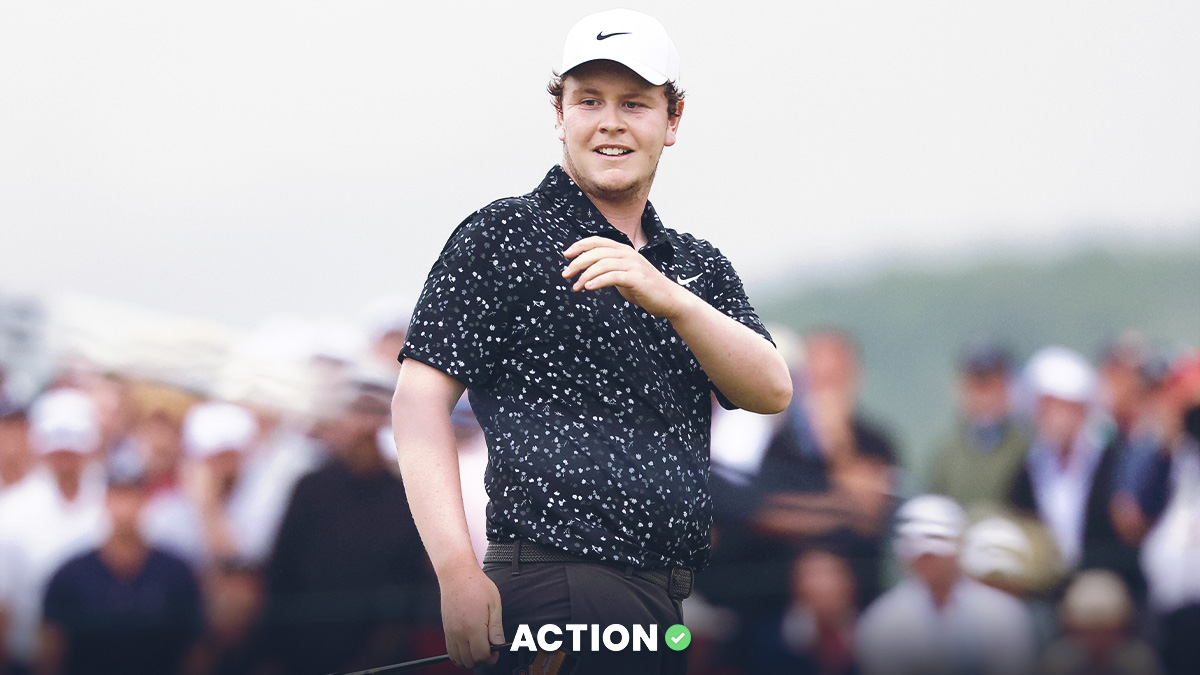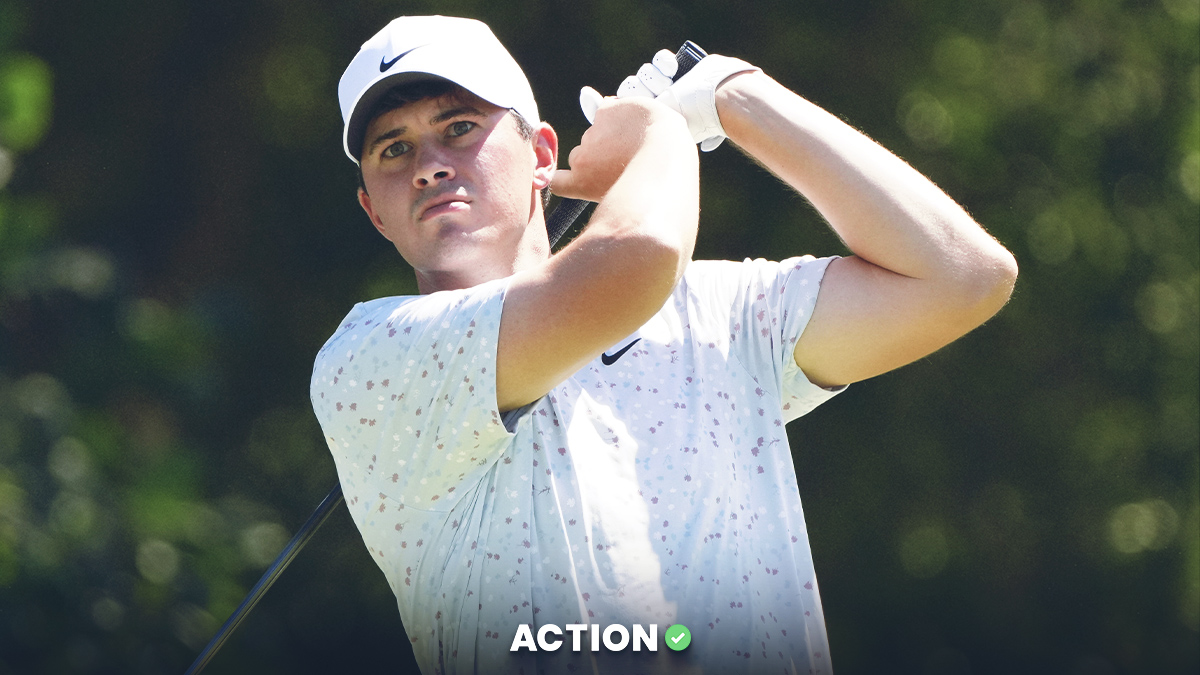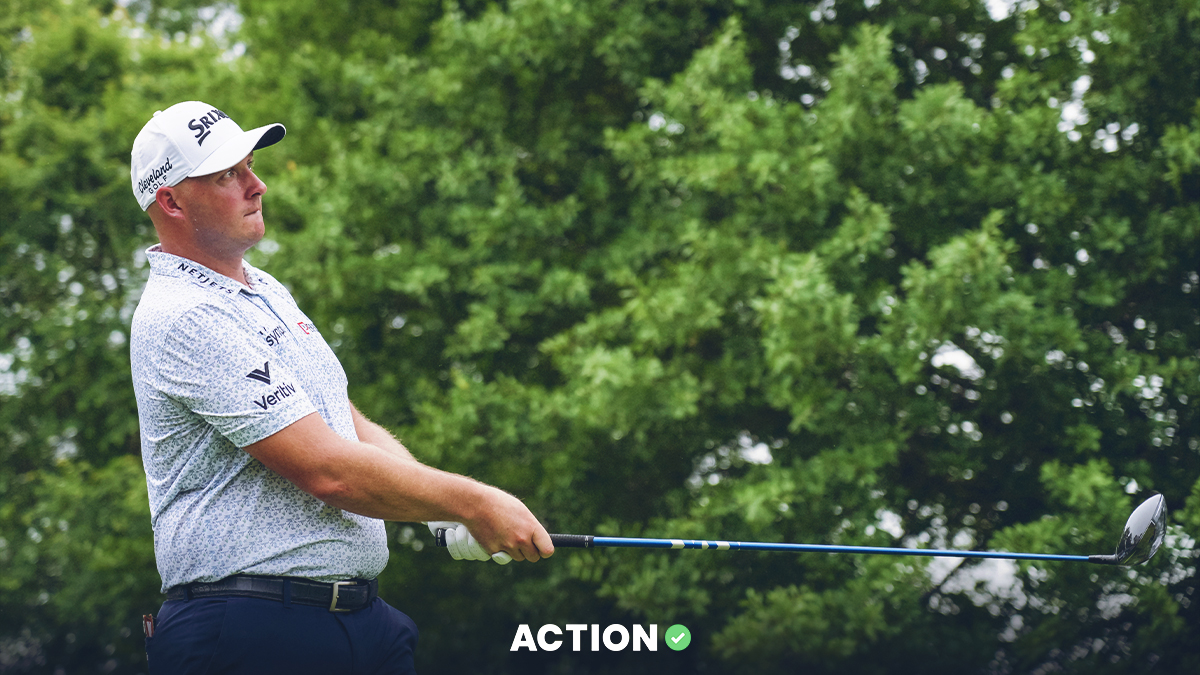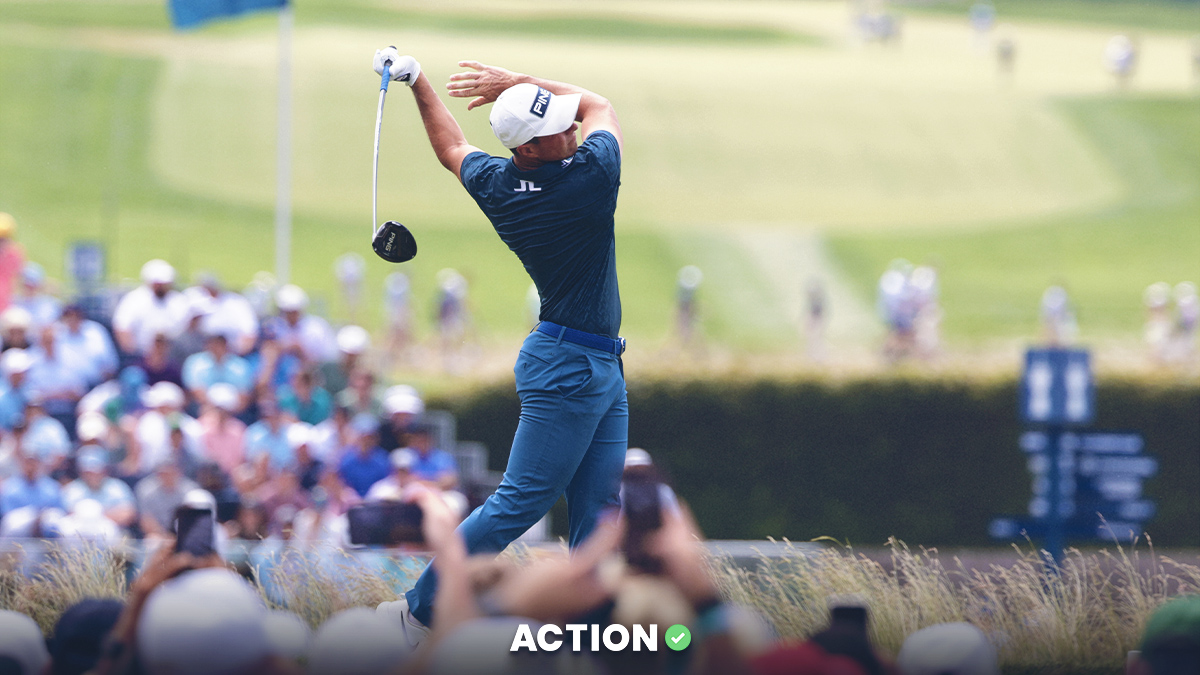Way back in 2016, I wrote about an idea called Vegas Bargain Ratings, which might sound more complicated than it actually is.
The basic premise: DraftKings salaries are highly correlated with odds to win the tournament, but it's not a perfect fit. By highlighting the golfers for which it's not correct — and this assumes that the liquid betting market is more efficient than static DFS salaries, which isn't a hot take — we can identify mispriced golfers, or ones that the betting market thinks are undervalued.
We can do this exercise with a variety of metrics, including our catch-call metric, Long-Term Adjusted Round Score, which is the average strokes on a course with adjustments made to account for the difficulty of the course and the strength of the field.
So I can also compare Long-Term Adjusted Round Score to odds to win to identify which golfers are underpriced in the betting market relative to their long-term play.
That shouldn't be the end of the betting story — course fit and history are also important, as is recent play when there's not a layoff like we've had — but it is a valuable data point in researching for this week.
Travelers Championship Promos!
- Win $100 if Bryson DeChambeau makes just ONE birdie all week
- Get a FREE $25 bet on Justin Thomas to win the Travelers
Let's start with the DFS side of things; betting will be in the section below.
Note: A number of golfers have withdrawn. See more here.
The Best & Worst DFS Values According to the Betting Market
If you're familiar with this piece, you won't be surprised to see Justin Thomas, Bryson DeChambeau and Rory McIlroy — the leaders in odds for this tournament — at the top of this list. DraftKings has a salary cap and thus has to make golfers playable.
But if you believe the betting market is efficient, then DraftKings is clearly providing value on the top guys, as their win equity far outweighs their salary. Based on this simple regression, JT, for example, should be in the $12,000 range, but instead he's below $11K.
And this is important for one big reason: In tournaments, you almost always have to have the winning golfer on your roster in order to take it down. That doesn't mean you should just completely optimize based on the betting market, but if you believe it's more efficient than DraftKings' pricing — a very fair assumption — then honestly it's not a bad place to start.
Golf is quite random and the fields are huge: That's why even the best golfers have implied odds to win under 10%. But if that indicates how often a golfer would win on average — say, if you simulated things a million times — then it's definitely in your best interest — on average — to roster the top guys in a stars-and-scrubs lineup approach since they hold so much excess win equity.
Of course, DFS isn't quite that simple. Ownership is quite important: Your expected value for a lineup goes way down if it's duplicated even once. But with these loaded fields, you can still get guys oftentimes with high win equity but reasonable ownership. That's likely the best play in tournaments, in my opinion.
The Best & Worst Betting Values According to Adjusted Round Score
Again, we can do this same strategy with Long-Term Adjusted Round Score and outright odds. Using a regression, we can "predict" what a player's implied probably should be and compare it to their actual implied probability to win.
Of course, there are some complications here, too. Notably, there's more to handicapping than just long-term play. Course history and fit really matter, as does current form and a lot of narrative-driven factors. Further, long-term metrics may not capture a young golfer on the upswing, like Joaquin Niemann for example.
Further, betting markets have juice, and notably it's not evenly distributed across all the golfers evenly. Thus the implied probabilities for both actual odds and predicted odds add up to over 100% — I kept it that way just because of the uncertainty of the hold. This is more of an exercise to identify mispriced golfers than something that should be used in an optimizer anyway.
In this exercise, it shows that, according to Long-Term Adj Rd Score, a lot of the mid-tier guys are probably a bit underpriced according to their talent. Billy Horschel, for example, has the same LT Adj Rd Score as Matthew Fitzpatrick but is priced way below him.
Other guys seemingly mispriced this week include Shane Lowry, Lucas Glover, Byeong Hun An, Ian Poulter, Gary Woodland, Collin Morikawa (my favorite value this week), Fitzpatrick himself, Patrick Cantlay and others.
It's hard to fade guys like Bryson and JT, but in terms of just raw value, the mid-tier guys probably provide most of it. I'm not sure Morikawa should be 40-1, in other words.
Good luck this week!


